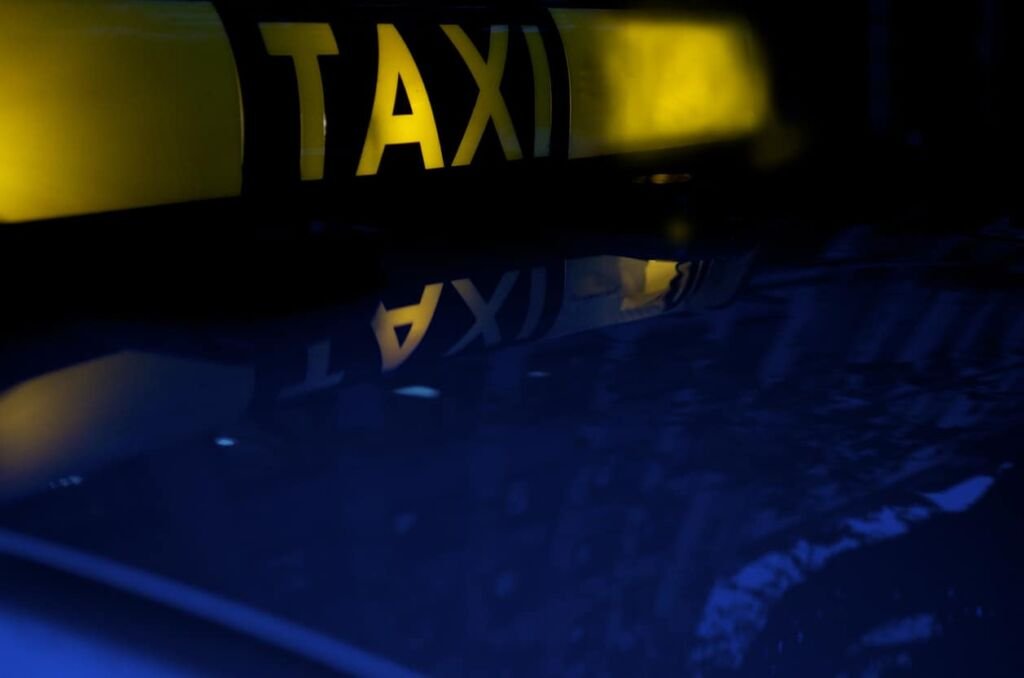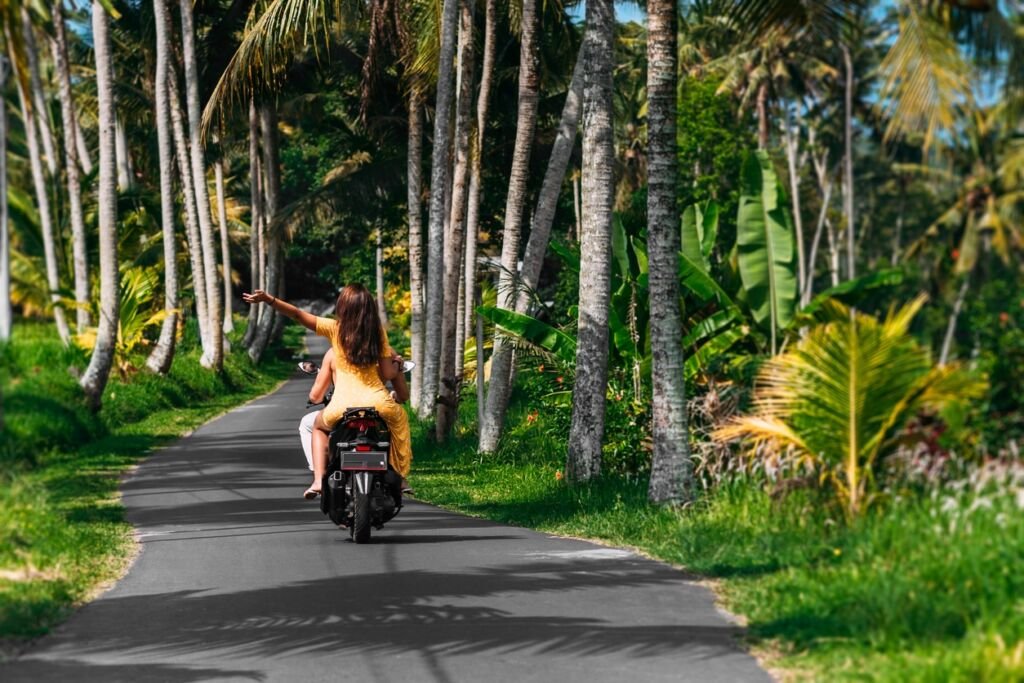Scams In Bali: Common Hustles, Tourist Traps & Staying Safe
This article is part of Wandering our World’s new ‘Scam Series‘ – a series of articles written by expats, locals and experts with tips and info to avoid being taken advantage of when on holiday.
Bali is known as “The Island of the Gods”, but unfortunately, as in other tourist destinations, not everyone has divine intentions.
On the whole, Bali is a safe destination and a fantastic vacation island, with stunning beaches, vibrant local culture, excellent food, world-class surfing and scuba diving. There’s even a couple of volcanoes to boot. Chances are, when visiting you will have the vacation of a lifetime and fall in love with this idyllic, paradise island.
But, to ensure that is the case, we are going to run through some of the common hustles and scams in Bali to be aware of when enjoying the Island of the Gods. All so you can have the best – and safest – vacation possible!
CONTENTS:
- The Indonesian Currency
- Airport Taxis
- ATM Skimming
- Currency Exchange Booths
- Taxis
- Grab & Gojek
- Hawkers
- Scooter Rentals
- Temples
- Fake Police
- Arak
- Drugs
- Our Final Thoughts

1. The Indonesian Currency
Not so much a scam, more something to be aware of and get your head around before traveling to Bali.
The issue here is the number of zeroes.
The largest bank note in circulation has a face value of 100,000 rupiah and is the equivalent of seven euros or US dollars, or about five pounds sterling.
With that being the case, you will likely have a large number of bank notes on your person at any given time, and with the smallest note being valued at 1,000 rupiah, there will be a lot of zeroes in your pocket.
Before you travel, get used to the exchange rate with regard to your home currency, and do a little mental arithmetic when paying bills.
Double check the value of the notes that you are handing over when paying for goods, especially at night. The purple 10,000-rupiah note is easily confused with the red 100,000-rupiah note as they are the same size. Also, carefully check any change you receive.
The number of zeroes involved and the similar size of all the bank notes makes it easy for someone to rip you off when cash transactions are being made. Always be certain of how much money you are handing over and how much change you are due.
Also, do a quick conversion to your home currency to ensure you are not being over-charged—an extra zero on the bill can be hard to spot when there are so many already.

2. Airport Taxis
Outside airport arrival halls the world over, you will find taxi drivers vying for business, looking to over-charge newly-arrived tourists for the journey to their accommodation, and Bali’s Ngurah Rai International Airport is no different.
As a fresh-off-the-plane tourist, the local taxi drivers will assume you do not know the correct fare to your hotel and will quote you an inflated price, knowing you need to use their services.
As a consequence of this situation, all the taxi drivers at the airport will try their luck securing a short drive for a high price.
The key is to do a little research before arriving – know how far it is from the airport to your accommodation and have a rough idea of how much this should cost. Ask your accommodation before arriving how much a taxi far should be.
If you are confident in your bartering skills, you may try to get their quoted price down a little, but all the drivers will be offering a similar price and will not be inclined to drop their price. Good luck.
One alternative is to arrange a transfer from the airport with your hotel. Many of the larger hotels offer this service, and it can save you some money and the hassle of wading through the sea of taxi drivers thronging the exits of the arrival hall.

3. ATM Skimming
This is one of the relatively common scams in Bali city centers around the ATMs when you are withdrawing funds. Unfortunately, ATM skimming is more common in Bali than it is in many other popular tourist destinations around the world.
First off, as a new arrival it’s a good idea to withdraw some rupiah at the airport ATMs—these ones are pretty secure, and you should have no issues.
When out and about in town, the safest ATMs are the ones housed inside the banks. Many banks have ATMs inside a porch area at the bank entrance. The porch area is accessible at night when the bank is closed. These machines are less likely to have been fitted with a skimming device.
When an ATM has a skimming device fitted, it can steal your information from the magnetic strip on your card, and tiny cameras will record you entering your secret number. With this information, the scammers will have access to your account.
If you need to use an ATM that is not attached to a bank branch, inspect the machine carefully before entering your card. Wiggle the card reader where you enter your card—it should not come away in your hand!
Be aware of fake keyboards installed on top of the official one, and keep an eye out for anything installed above the keypad that might be used to video record you entering your number.

4. Currency Exchange Booths
If you have some foreign currency with you, you need to use one of the currency exchange booths to switch it to Indonesian rupiah.
Keep an eye out, especially when your rupiah is being counted. The workers inside the booths are very skilled at miscounting!
One common trick they do is to count the money out in front of you, then they surreptitiously drop a note or two behind the counter before they hand it to you. Always recount your rupiah before you move away from the counter. If you are exchanging a large amount, this is more likely to happen.
The largest denomination of bank notes in Indonesia (100,000 rupiah) is relatively low value compared to higher value notes in other countries. This means when you exchange a large amount of currency, you will receive a large quantity of Indonesian bank notes, and it will be easier for the scammer to perform a sleight of hand. That’s what makes this one of the easier scams in Bali to fall for.
The large quantity of bank notes also puts tourists off rechecking after already watching the teller count the notes out, but it is always worth recounting the notes!

5. Taxis
Ahhh, the age-old battle between taxi drivers and tourists. Bali is no different to many other destinations in this regard.
But there are many legitimate and excellent taxi drivers in Bali, and if you use a little bit of caution, you should be fine.
The key to using taxis in Bali is to insist on the meter being used – this can help avoid most over-pricing scams. If the driver is insisting on a flat-rate without using the meter, maybe try a different taxi.
Also, when using taxis, double check the value of the bank notes that you are handing over—is that really a 10,000-rupiah note or is it 100,000 rupiah? Be extra vigilant in the dark of night when the purple and red colors look even more alike.
And make sure the driver does not switch the notes you handed him for lower denomination notes out of your view, then claim “you only gave me a 10,000-rupiah note” when you actually handed over a 100,000-rupiah note. And then, whenever you receive any change from the driver, ensure you have been given the correct denomination of notes too.
The island’s expats are well aware of the issues with taxis and often insist on using the same taxi company, Bluebird. This company have an excellent reputation and are very honest, always turning the meter on before being asked.
However you also need to be aware of fake Bluebird taxis! The other taxi companies are well aware of Bluebird’s excellent reputation and try to take advantage of this fact. Because of that most taxis in Bali are now a pale blue color, and many have similar branding and logos to that of the true Bluebird taxi company.
With that the case, if you are hailing a taxi in the street, check the logos carefully, and be on guard for drivers not turning the meter on. There are also fake Bluebird apps available, so to be sure you are booking with the genuine Bluebird, use their website or phone them directly.

6. Grab & Gojek
Grab, Singapore’s answer to Uber, operates in Bali and can be a convenient way to get around, but you should still be cautious.
Download the app, then summon a driver to take you to your destination. You will see the price beforehand when you book, but oftentimes the driver will ask you for a different price when they arrive, and of course this will be a higher price than the app quoted you.
The drivers are counting on the fact that you will not want to wait further for a second driver to arrive and that you will pay the inflated price after a moment of moaning.
In the Indonesian language, “ojek” means “motorbike taxi,” and the app “Gojek” is another means of summoning a driver. There can be similar issues here as with the Grab drivers, so be aware and don’t get overcharged. Gojek is a useful app, though, and also offers food delivery services in addition to taxis.

7. Hawkers
Perhaps more of an annoyance than a scam, some of Bali’s busier beaches, such as Kuta Beach, can be plagued by hawkers touting their goods along the sand. And they can be extremely persistent.
A couple of words in Bahasa Indonesia can help – ‘sudah ada’, meaning ‘already have’, sometimes encourages them to move along, but not always.
Often, the wares of the beach hawker are not of the highest quality too. In fact hand-made bags and trinkets often don’t even last the rest of your vacation!
And for those agreeing to a beach manicure or pedicure, you may find, after a few hours in the sea and sand, the cheap varnish has already disappeared.
While it’s debatable whether this goes down as one of the scams in Bali, it’s certainly a tourist trap that’s worth being aware of.

8. Scooter Rentals
As in other Southeast Asian countries, be careful when hiring a motorbike or scooter.
The first thing to check is whether or not you can legally drive in Bali. To do so, you will need to have either an Indonesian driver’s license or an International Driving Permit for the class of vehicle you wish to hire.
There are plenty of police roadblocks in Bali for the sole purpose of checking licenses and hitting those who are without with on-the-spot fines. And they target tourists as they are more likely to not have the correct documents to drive legally.
Driving without a helmet is another surefire way of getting stopped and fined. If you are legally allowed to drive in Indonesia, it’s still a good idea to keep your cash in two separate locations when driving – some small change in your pocket, and the rest in a wallet in your bag. Why? Well if the police ask for 500,000 rupiah but you empty your pockets to reveal only 50,000, often the police will just take that and send you on your way.
The other side of scooter rental to be wary of is getting scammed for damage to the bike when you return it – this is one of the more common scams in Bali when it comes to scooter rental.
Always inspect the bike for damage before driving away. It’s a good idea to use your phone to slowly video the entire bike, noting any existing dents or scratches and pointing them out to the rental company.
However if you have never driven abroad before, Bali may not be the best place to try it. The style of driving can appear a little chaotic to the uninitiated, and there are many narrow and winding roads.
Maybe sit and watch the traffic in a busy area first, and see how the chaos unfolds. This is definitely a good idea if you have never driven on the left before. Having an accident can be an expensive affair—be careful!

9. Temples
Bali is a stunning island, rich in history and culture.
You cannot visit Bali without taking in some of the spectacular cultural sites, such as Tanah Lot temple to the north of Seminyak and Kuta.
However keep your wits about you when approaching or entering these attractions, as one of the scams in Bali involves “fake officials” lurking to nefariously take your tourist dollars.
These fake officials can act as parking attendants, guides, or even collect non-existing entrance fees. Some attractions that offer free parking have been known to have people pretend to be employed by the attraction and collect parking fees; check in advance if the parking should be free before visiting.
At other locations, you may be told that it is mandatory to hire a guide. This can also be checked before you visit.
And at temples, it is advisable to arrive in the appropriate attire. Many temples require legs to be covered, and many of them do have sarongs available to use for free when you visit. Although it has been known that people are charged for using the loan sarongs, or are convinced they need to buy one (at an exorbitant price) on the approach to the entrance.

10. Fake Police
There are reports of people fraudulently acting as police to extort money from tourists too.
This Bali hustle has been seen around some of the attractions which are a little off the beaten track and away from the main towns, such as Mount Batur.
Often, you can tell how authentic the police officer is by glancing at his bike. It should not have a crude sticker stating “Police”; it should have “Polisi” professionally hand-painted on the side.
If such an ‘officer’ asks for your passport, do not give it to them—it will be expensive to get it back. Remain polite and calm and let them know you will just call your country’s embassy for advice — they will give up and drive away at this point.
This is one of those scams in Bali that may seem intimidating, but thankfully it is quite rare.
11. Arak
The “local liquor” on the Island of the Gods goes by the name of ‘arak.’
Balinese arak is not the same drink as the one that is popular in the Middle East. In Bali, arak is made from rice or palm sap and can vary in its strength.
While there are commercially-produced bottles of arak to be found, the more readily available arak tends to be home distilled. You can find it very easily in most warungs and there will seldom be an issue.
But be aware that there have been incidents of home-made arak having methanol added to boost the strength, with fatal consequences in a handful of cases. If you wish to buy a bottle of arak, ask your hotel staff if they can recommend where to buy it.
Also, be aware of some of the less-salubrious drinking establishments topping up clear spirits with cheap arak. Arak is a colorless spirit, so if your gin and tonic tastes a bit funny, especially later in the evening, maybe it’s time to change bars.

12. Drugs
Don’t. It’s as easy as that if you want to be sure you won’t get into any trouble.
Indonesia has some rather draconian laws regarding illegal narcotics, and you don’t want to fall foul of them. Drug trafficking carries the death penalty, and possession could land you behind bars for a very long time.
While they are available, and if you choose to seek them out you will find them, you shouldn’t. There are reports from Bali’s party zones, that a significant percentage of drug dealers are either undercover police or working as an informant to the police.
If you visit some of the smaller islands near to Bali, such as the Gilis, near Lombok, you may be under the misapprehension that psilocybin mushrooms are legal in Bali. They are not legal, and although it is very common to see signs advertising them on the Gilis, you could get into trouble in either the Gilis in Bali for having them on your person.
In Bali, if you are wandering around the party towns late at night, someone may approach you asking if you would like to buy some. They will claim they are legal, but the police officer who may or may not be waiting around the corner would certainly disagree with that.
Scams In Bali: Our Final Thoughts
Please do not be put off planning a trip to Bali by this article. Bali is a beautiful island and an amazing vacation destination, and is no different to other popular tourist locations.
Chances are you will not encounter any of these issues during your stay, and the fact that you are now aware of them ahead of time means you are more likely to smell a rat if one does appear. Afterall, they say being forewarned is being forearmed.
Just be a little extra alert in certain situations and you will be sure to enjoy your dream vacation in Bali. Withdraw money from ATMs inside banks; dress appropriately when planning a temple visit; insist on the meter being used in taxis; and don’t drive unless you are legally permitted to do so.
Aside from that, enjoy Bali’s stunning beaches, its volcano treks, vibrant coral reefs, tranquil temples, and its lively nightlife. Let the beautiful Balinese people welcome you to their island and enjoy your slice of paradise.








